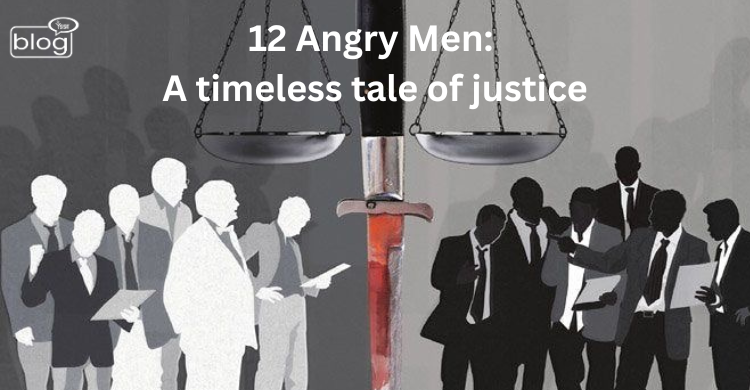12 Angry Men is a classic movie that portrays the American justice system in complicated folds while stressing the fragility of truth. It was released in 1957 but continues to capture the audience’s interest even in the 21st century. It shows that justice cannot be black or white, and neither can individual conscience be swayed by group prejudice.
In this film about a group of twelve men on a jury, they must judge whether or not a young man is guilty of murder. With each new judgment, the tension mounts, and the biases continue to be exposed. The jurors, who represent a varied cross-section of society, struggle with their convictions and the gravity of their judgment. One juror, played superbly by Henry Fonda, emerges to be a voice of reason, questioning his peers’ assumptions and quick conclusions. Through painstaking analysis of the evidence and persistent trust in the idea of reasonable doubt, he progressively persuades his fellow jurors to reconsider their decision.
The strength of the film lies in how it can represent a microcosm of society within the confines of a jury room. The interactions of the jurors reflect real-life issues, emphasizing the strength of persuasion, the influence of groupthink, and the value of critical thinking. The investigation of these themes within the film is still relevant today, as we wrestle with concerns about justice, fairness, and the human condition.
The middle act is a masterclass in dramatic tension and psychological warfare as the jurors have heavy disputes and their actual personalities and motives emerge. The initial vote of “guilty” weighs heavy in the air, and it falls to Juror 8 to unravel what seems to be a very solid case against the accused.
As the arguments develop, the movie explores the meaning of personal conscience and the courage to stand up for what one believes. The unshakeable belief in the innocence of the accused by Juror 8 sends his fellow jurors into an examination of their beliefs and biases. The film shows just how one voice can question the status quo and change it.
What has kept this movie fresh after all these years is the depth with which it stirs our empathy, challenges our assumptions, and incites us to question the status quo. As we follow the path of these jurors from an already-reached verdict to deliberation, our belief in human bonding and the resultant open exchange of views is reaffirmed. The film makes a pretty straightforward point: justice cannot be delivered except through careful deliberation, thinking critically, and the openness of listening to dissident opinions.
12 Angry Men is an evergreen story that moves with the times, creating sensitivity and touching the hearts of people throughout the world. That is a tribute to cinema that rouses your thinking, stimulates action, and thus changes. It is such a classic that it has survived ages and would still be relevant to audiences around the world. It’s a wonderful statement on how cinema can open minds, inspire actions, and change things.
To read more blogs click here.
Writer
Mahfuza Amir Ela
Intern, Content Writing Department
YSSE

